Friday could be Britain’s hottest day EVER - but thunderstorms are set to bring flash floods and strong winds

Britain will see temperatures rise even further at the end of this week, with Friday predicted to be the UK’s hottest day EVER.
The mercury is forecast to hit 37C (98.6F) on Friday, breaking the UK’s all-time heat record of 38.5C (101.3F), the Met Office said.
Thunderstorm warnings are in place for parts of northern and eastern England and the Midlands for Friday, and these areas could see flash flooding, lightning strikes, hail and strong winds.
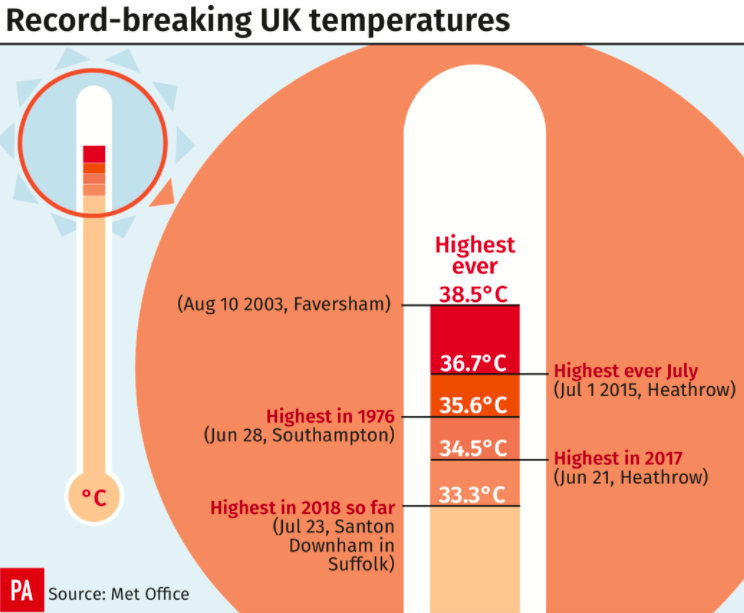
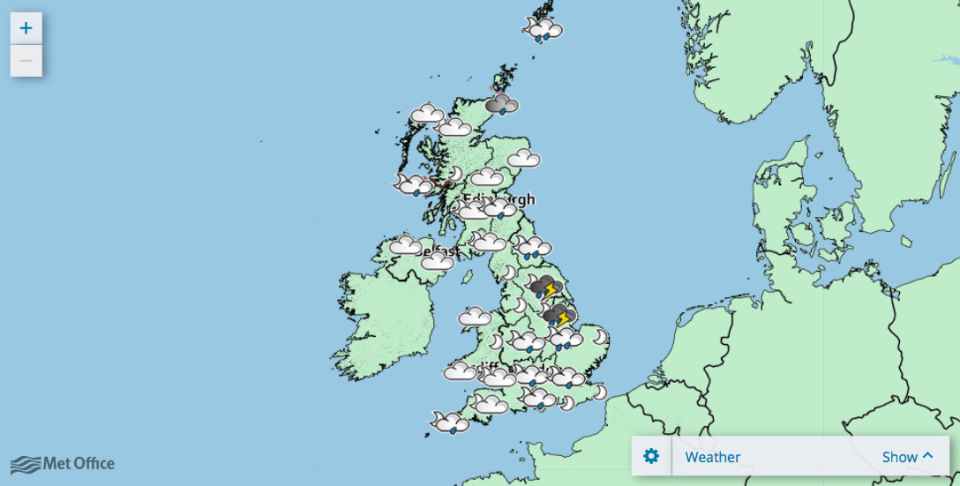
This could lead to flooding of homes and businesses, difficult driving conditions and potential power cuts.
Paul Gundersen, chief meteorologist at the Met Office, said: ‘The heatwave conditions will continue across much of England, with temperatures into the mid to high-30s Celsius in many places from the Midlands eastwards on Thursday and Friday and it’s possible that we could break the all-time UK record of 38.5 C if conditions all come together.’
The all-time UK high is 38.5C set in August 2003, while the highest recorded temperature for July is 36.7 C at Heathrow on July 1, 2015.
MORE: Brit family return to UK to find Sudanese stowaway who hid on their motorhome for FOUR DAYS
MORE: Firefighters tackle overnight blaze at block of flats in north-west London
Gunderson added: ‘Whilst many places will remain dry and hot, the thunderstorms on Friday could lead to torrential downpours in places with as much as 30mm of rainfall in an hour and 60mm in 3 hours.
‘Large hail and strong, gusty winds are also likely and combined could lead to difficult driving conditions as a result of spray and sudden flooding.’
As parts of the UK continue to swelter in the heat, there were warnings that hundreds of people could die unnecessarily because of a lack of awareness of the rising risk of heatwaves.

Bob Ward, policy and communications manager at the Grantham Research Institute on Climate Change and the Environment at the London School of Economics said the figure for heat-related deaths was likely to exceed 1,000 based on the extra deaths seen in short hot spells in 2016 and 2017.
An amber ‘heat health watch’ warning remains in place for parts of England, with people being warned to try to stay out of the sun between 11am and 3pm.
Health Secretary Matt Hancock has been urged to set out what measures he is taking to make sure the NHS can cope with the heatwave.
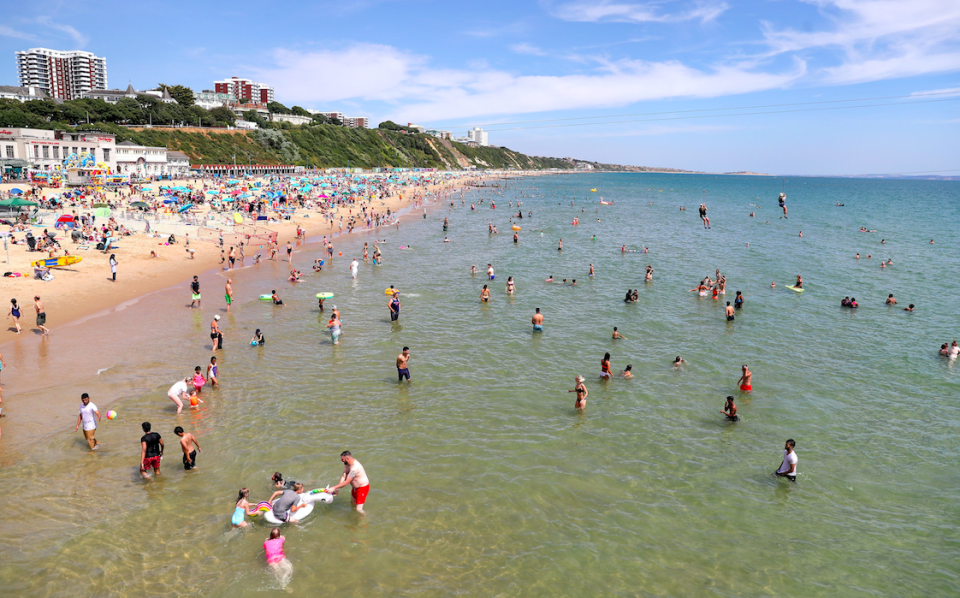
Blood supplies have dropped, health officials have said, saying some people have been too dehydrated to donate while others have chosen to stay in the sun instead of visiting blood banks.
MPs have now warned that heat-related deaths will treble by mid-century unless the Government takes action to tackle the dangers of soaring summer temperatures.
Without the Government developing a strategy to protect vulnerable people, such as the elderly, numbers dying from the heat could rise to 7,000 a year by 2050, a report from the parliamentary Environmental Audit Committee said.
Good Morning! Feeling hot for most with thunderstorms in some areas. For more info: https://t.co/lvmvtqQWBN ^Ellie pic.twitter.com/TlYJ5q5rxM
— Met Office (@metoffice) July 26, 2018
The committee called on the Government to take action to ensure homes, hospitals, care homes, offices, cities, water supplies and transport networks can cope with rising temperatures.
Mary Creagh, chairwoman of the Environmental Audit Committee, said: ‘Heatwave warnings are welcomed as barbecue alerts, but they threaten health, wellbeing and productivity.
‘The Government must stop playing pass the parcel with local councils and the NHS and develop a strategy to protect our ageing population from this increasing risk.‘

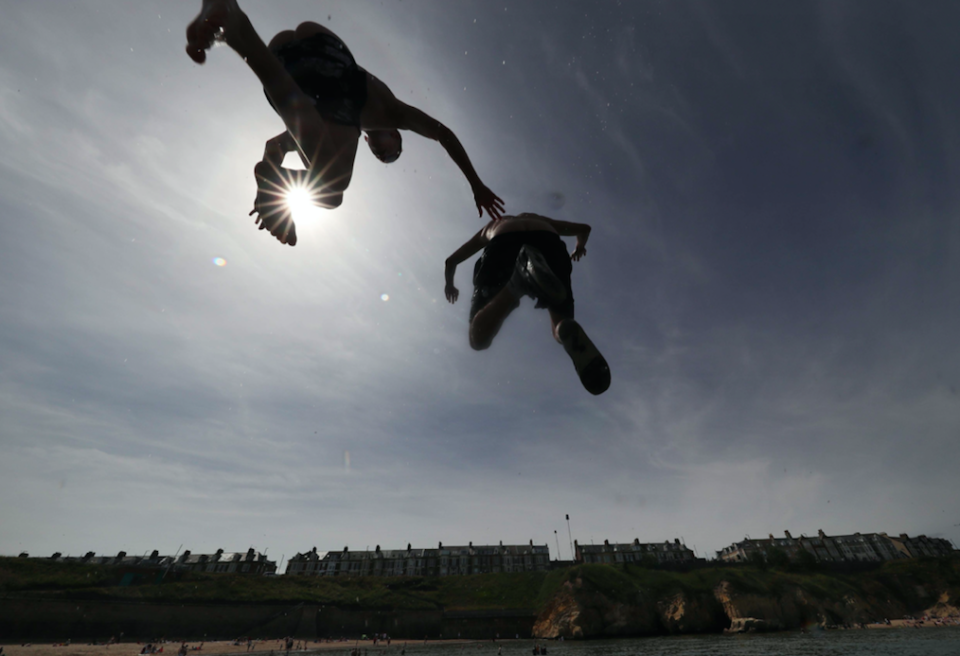
She said the Government needed to do more to warn the public of the health risks of heatwaves.
And she said: ‘It must change building regulations and planning policies to ensure homes and transport networks are able to deal with extreme heat, and that local authorities and cities have green spaces and heat-resilient infrastructure.’
Scientists have warned that climate change is making such heat extremes more likely.
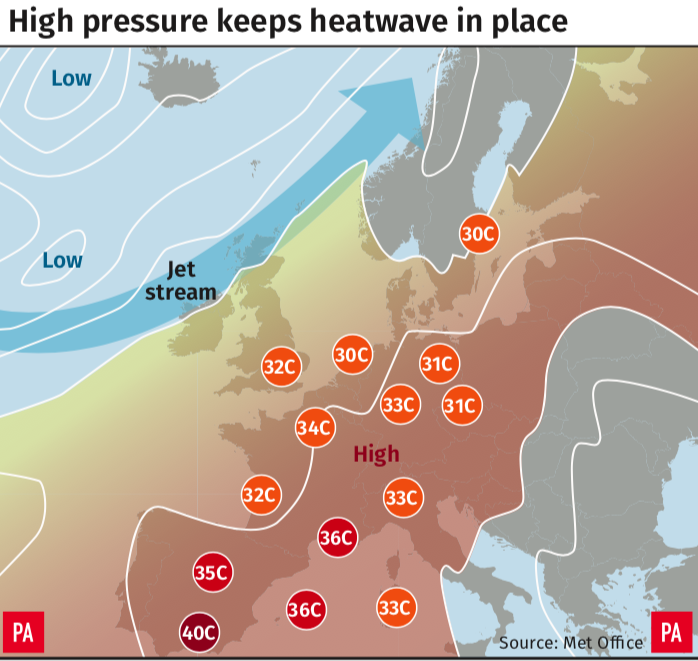
More than 2,000 people died in just 10 days in 2003 when a heatwave pushed temperatures to as much as 38.5C (101.3F), and the Met Office warns that hot spells of a similar intensity will occur every other year by the 2040s.
The dry spell has been most prolonged in East Anglia and south-east England where the last day of very widespread rainfall was seen on May 29.
Firefighters have urged the public to avoid ‘careless and reckless’ behaviour during the ongoing heatwave as crews across the country deal with a high number of field fires.

 Yahoo News
Yahoo News 

